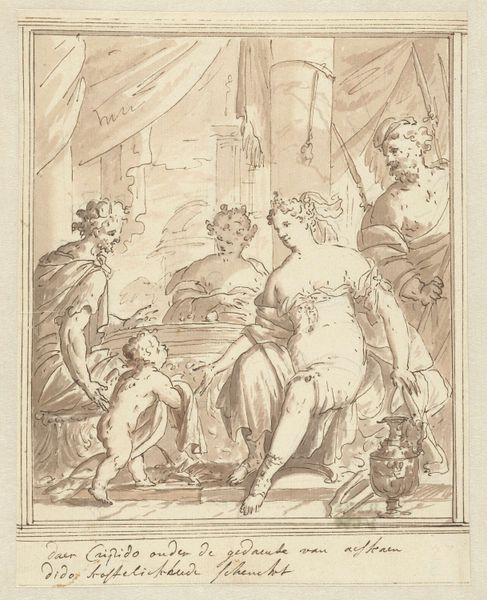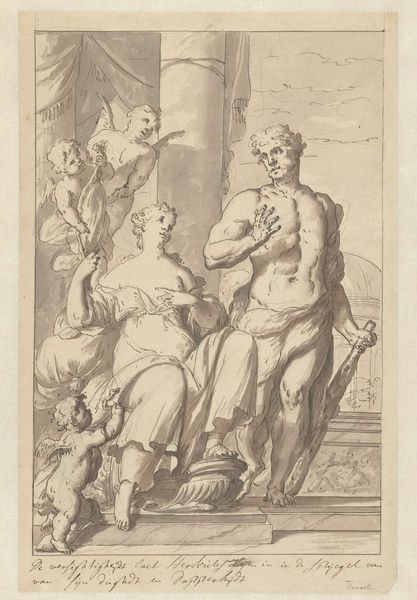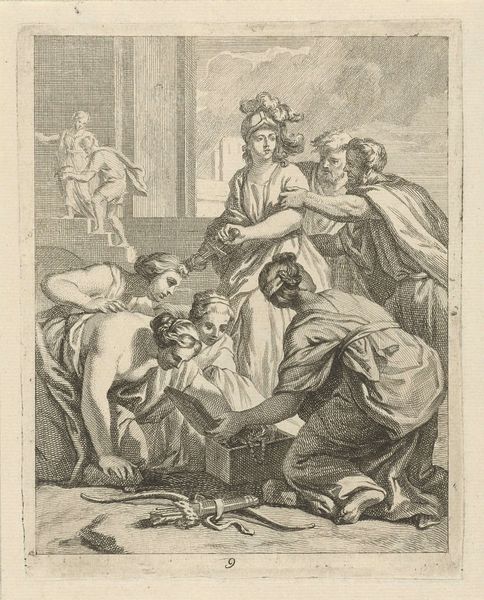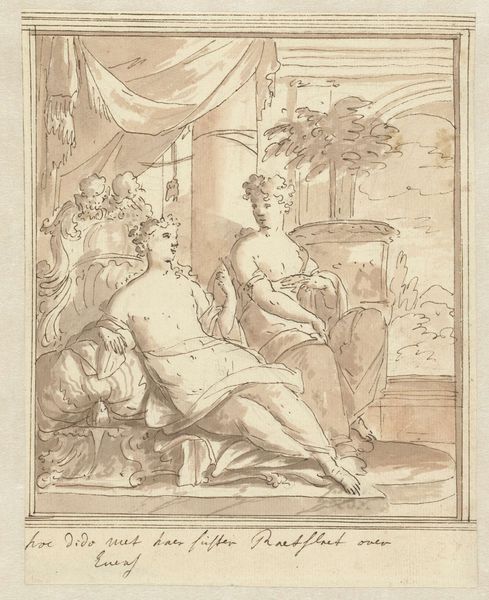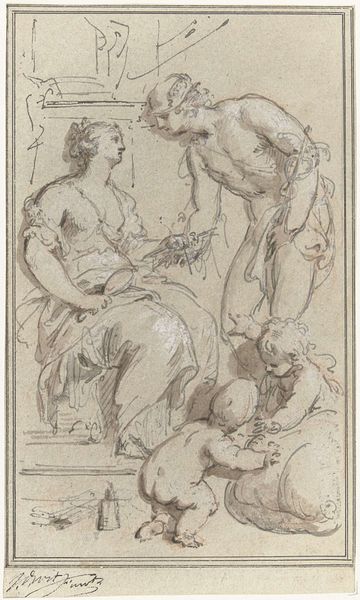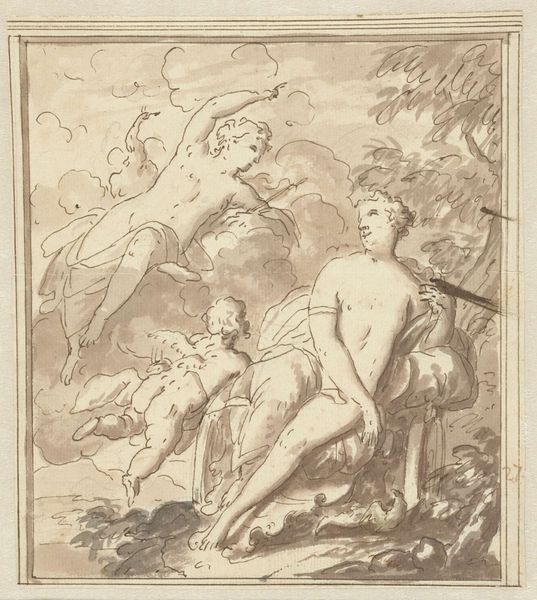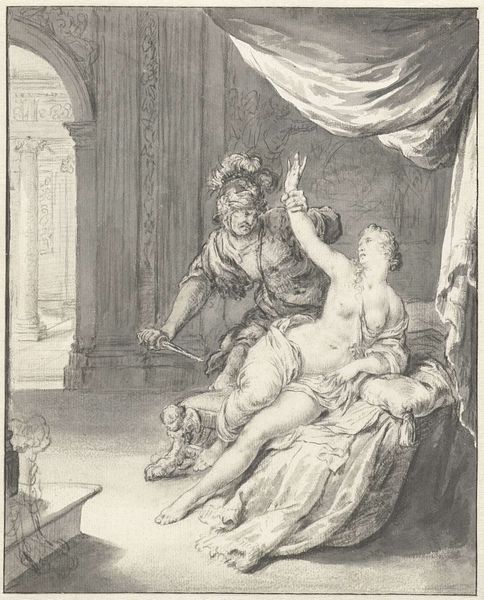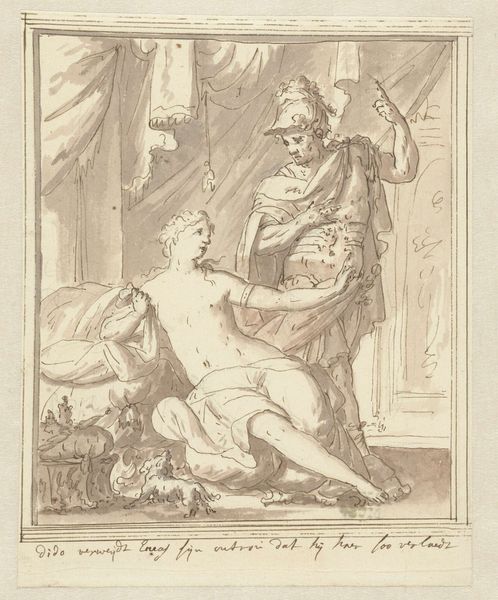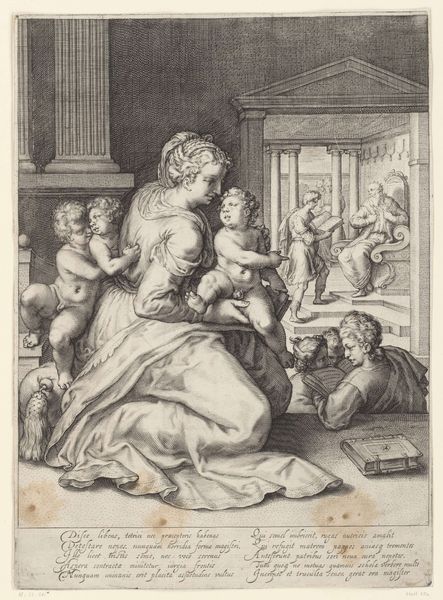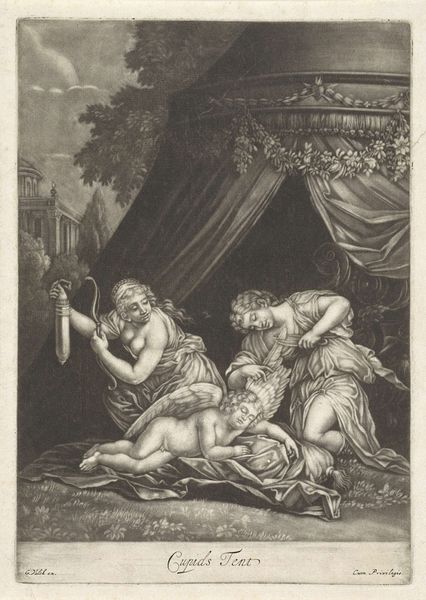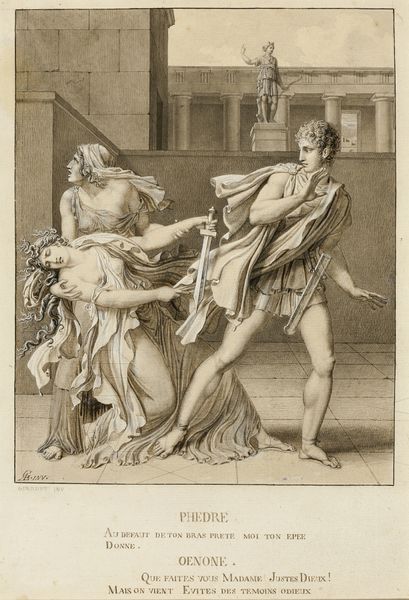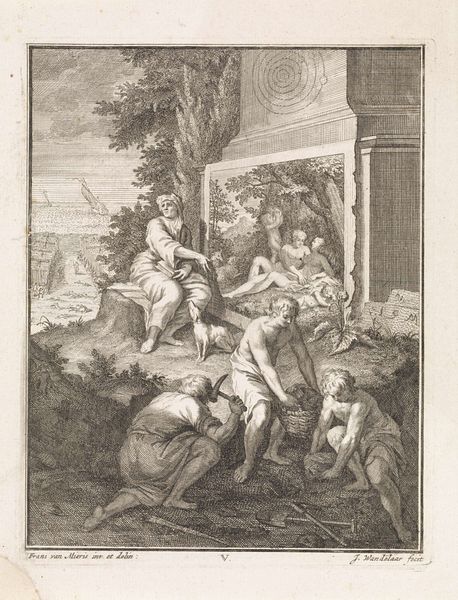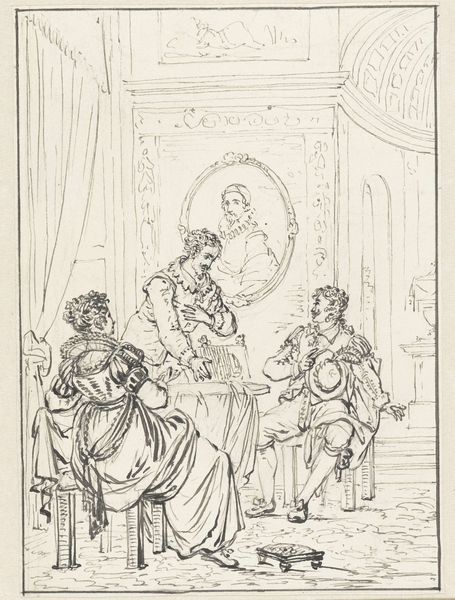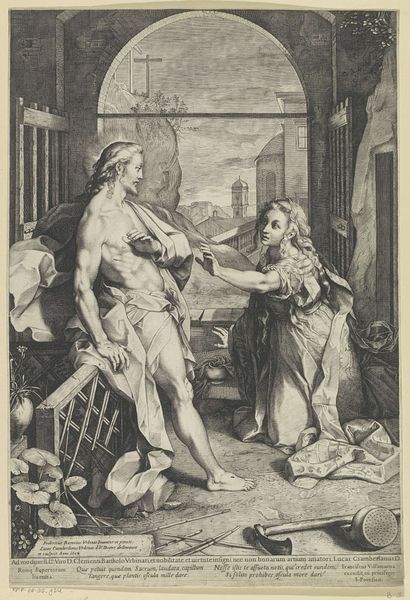
drawing, ink, pen
#
drawing
#
narrative-art
#
pen sketch
#
pencil sketch
#
figuration
#
11_renaissance
#
ink
#
pen-ink sketch
#
pen
#
watercolour illustration
#
watercolor
Dimensions: height 192 mm, width 150 mm
Copyright: Rijks Museum: Open Domain
Editor: So this drawing, "Dido Offering to the Gods," by Mattheus Terwesten, was made sometime between 1600 and 1604. It’s done in pen and ink, with some washes, I believe. The line work seems very fluid, and the figures feel dynamic even though it’s just a sketch. What visual cues stand out to you in this piece? Curator: Primarily, I observe the artist's handling of line. Note how the varying line weights create a sense of depth and volume, particularly in Dido's figure and in the sacrificial bull. The hatching is deployed strategically, isn’t it? To define the musculature of the figures and to render shadow, constructing a hierarchy, don't you agree? Editor: Yes, the darker lines do bring certain elements forward, like Dido and the altar, separating them from the background. It seems the composition emphasizes the act of offering itself. Curator: Precisely. The composition itself is classically inspired. The artist seems concerned with creating balanced asymmetry. He uses semiotic elements – the offering cup, the sacrificial animal – within a structure that prioritizes a visually satisfying arrangement of forms. How do you think this classical structure changes how we view it? Editor: By utilizing a deliberate structural organisation, the themes of sacrifice and devotion gain added significance through balanced contrast of dark and light elements? Curator: An excellent point. Considering the semiotic function of line and form reveals this drawing not merely as a preparatory sketch but as a self-contained statement. Editor: Thank you, I will definitely try to analyse the art piece using this new viewpoint in future.
Comments
No comments
Be the first to comment and join the conversation on the ultimate creative platform.
